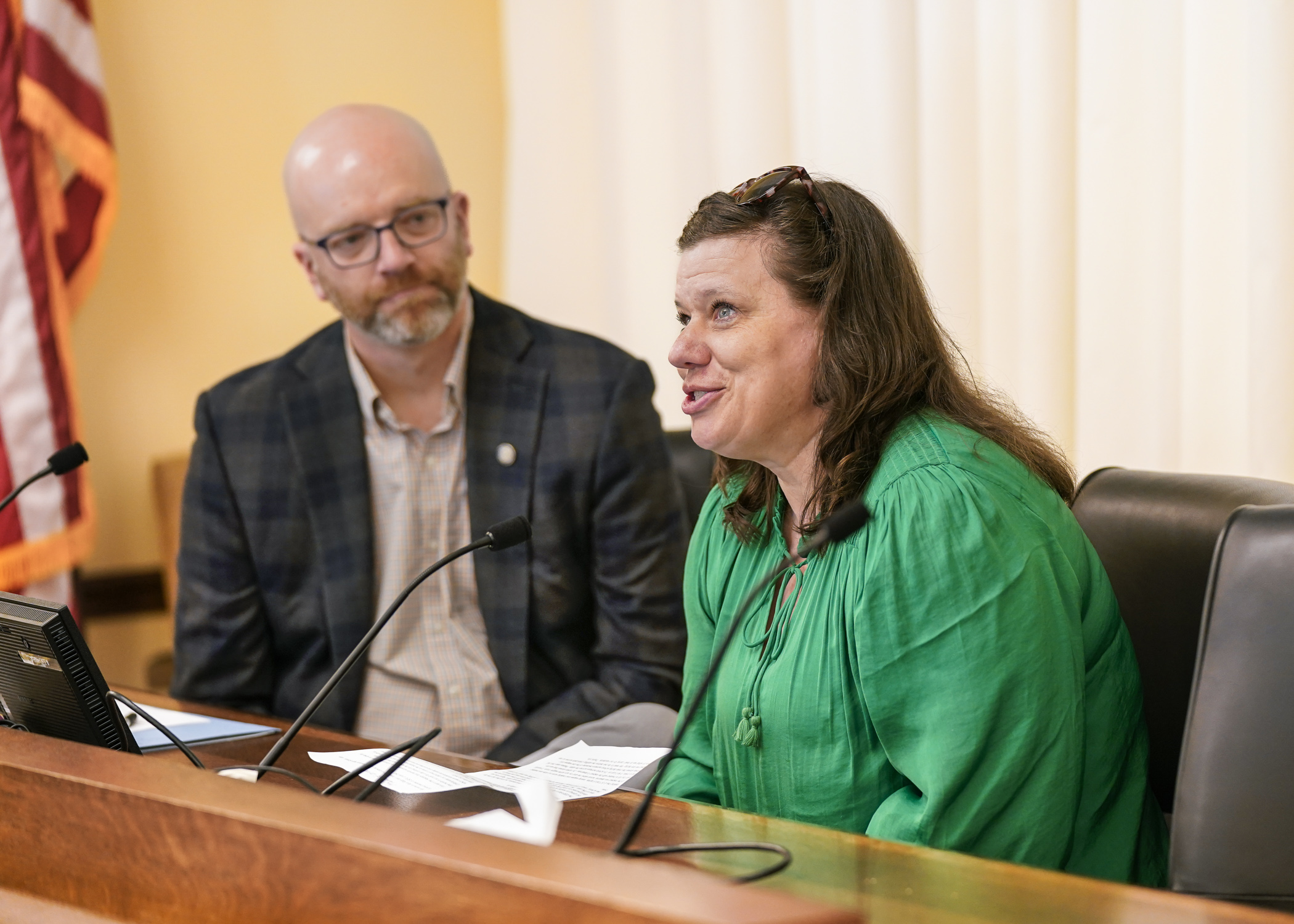Proposed wage, benefit increases for non-licensed school staff sparks lively House debate

Seventy-two openings for paraprofessionals with Osseo Area Schools. Ten open nutrition positions in Prior Lake-Savage Area Schools. Thirty unfilled bus driver seats at St. Peter Public Schools.
This is just the tip of the iceberg – there is an acute shortage of educational support professionals throughout Minnesota’s K-12 schools.
According to Rep. Brad Tabke (DFL-Shakopee), subpar wages and benefits are responsible for this persistent labor scarcity. He aims to rectify the dilemma by sponsoring HF1348, which he has labeled the ESP Bill of Rights.
The House Education Finance Committee laid over the bill, as amended, Tuesday for possible omnibus bill inclusion.
Tabke’s bill would dramatically change working conditions for hourly, unlicensed workers in Minnesota’s schools, such as paraprofessionals, food service workers, and bus drivers.
Qualifying staff who work an average of at least 14 hours a week and 100 days per school year in one position would see their minimum wage rise to $25 beginning in the 2023-24 school year.
Generous health benefits would also be provided. Effective July 1, 2023, school districts, charter schools, and cooperative units would have to offer health plans that would cover:
- 100% of annual premiums and at least 50% of the annual out-of-pocket maximum for a single individual; and
- at least 85% of annual premiums and at least 50% of the annual out-of-pocket maximum for a family.
Employers would be required to provide these benefits to all qualifying staff that work at least four hours a day. Workers would also keep these health benefits during the summer break if the school plans to hire them back in the fall.
Additionally, a minimum of 16 hours of paid orientation or professional development would be provided annually to paraprofessionals and non-instructional staff, and schools would have to pay all employees their full wages and benefits on future e-learning days.
The minimum wage increase, paid orientation requirement, and e-learning pay would also apply to workers employed by third-party contractors who perform this work at schools.
No fiscal note was presented to the committee, but Tabke insists the state will ultimately cover the costs associated with these mandates. Funding formulas are specified in the bill but await firm appropriation amounts.
Competing testimony was given from numerous workers and school officials on the merits of the bill.
Annie Gibson is a paraprofessional in South Washington County public schools and loves her job.
“Every day I work to make a difference in their lives,” she said. “These children depend on us every day.”
But she is a single mother of two and struggles to make ends meet. She says the bill would put more money in her pocket, helping her to house, clothe, and feed her children.
Tim Caskey, executive director of human resources with the Elk River School District, took issue with the proposed minimum wage increase. “We believe in a competitive wage, but we believe that that competitive wage should be a product of the market as well as the collective bargaining process.”
Caskey claims the mandated wage increase will cost his district $3.4 million. This money would have to come from somewhere, like raising the cost of a la carte cafeteria items and hiring fewer counselors and social workers.
Rep. Shane Hudella (R-Hastings) referenced an ongoing labor dispute in his district and his hopes to aid in its resolution, but plainly stated, “This bill is not the answer.”
He sees the proposal as an attempt by unions to lobby the Legislature for improved working conditions they are unable to gain through collective bargaining. He worries this is a potential slippery slope, whereby other professions will show up in the future demanding better wages and benefits.
Related Articles
Search Session Daily
Advanced Search OptionsPriority Dailies
Speaker Emerita Melissa Hortman, husband killed in attack
By HPIS Staff House Speaker Emerita Melissa Hortman (DFL-Brooklyn Park) and her husband, Mark, were fatally shot in their home early Saturday morning.
Gov. Tim Walz announced the news dur...
House Speaker Emerita Melissa Hortman (DFL-Brooklyn Park) and her husband, Mark, were fatally shot in their home early Saturday morning.
Gov. Tim Walz announced the news dur...
Lawmakers deliver budget bills to governor's desk in one-day special session
By Mike Cook About that talk of needing all 21 hours left in a legislative day to complete a special session?
House members were more than up to the challenge Monday. Beginning at 10 a.m...
About that talk of needing all 21 hours left in a legislative day to complete a special session?
House members were more than up to the challenge Monday. Beginning at 10 a.m...